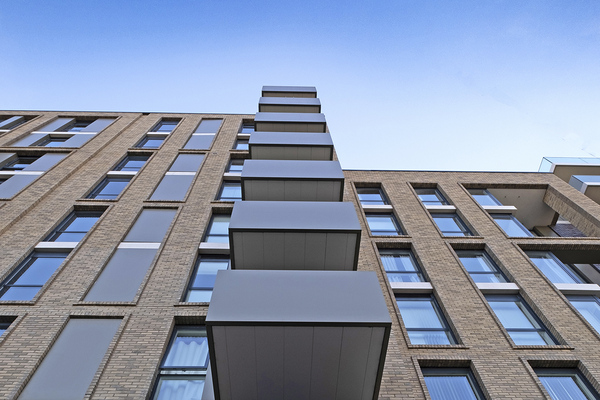Pay and display tenancies
The government wants high-earning social tenants to pay more rent so why do landlords want ministers to park the policy? Nick Duxbury investigates
The proposition looks pretty sensible on paper: if you are a high-earning social tenant, you shouldn’t be paying a low, subsidised rent. You should either pay more to stay, or move to another tenure. After all, housing need has never been greater - waiting lists have soared to 5 million in England, and supply of social housing has never been lower. It would be fairer and enable landlords to increase their incomes, allowing them to build more homes and make more efficient use of dwindling housing stock.
This was certainly the coalition government’s thinking when it first outlined plans to introduce ‘pay to stay’ rules for England in June. However, in a consultation that closed on Friday, this apparently sensible policy was widely panned by the housing sector.
In its response, the Chartered Institute of Housing says the plans would have ‘devastating costs for social housing providers’ and put them in a ‘precarious position ethically and in relation to their charitable status’. Similarly, the National Housing Federation and Shelter say the proposals were unworkable and would cost landlords more than they would ever save. The Association of Retained Council Housing argues rental policy is ‘a local matter on which councils should be free to decide’. Even the Council of Mortgage Lenders warns that flexible rents could impact lenders’ confidence in the sector.
So what went wrong? Why was this ‘no-brainer’ of a proposition rejected so categorically by the sector?
The problem comes down to proportionality. The consultation document suggests social households earning between £60,000 and £100,000 should be asked to pay more rent, up to the full market value for their area.
Small return
It estimates that there are between 1,000 and 6,000 social tenants with an income of £100,000. It reckons the number earning more than £60,000 is between 12,000 and 34,000 - still a tiny number given that there are 4 million social tenants according to the CIH. All tenants would need to have their incomes monitored, though it is unclear at this point how this information is to be obtained.
Most housing providers argue that the cost and resources required to collect and monitor tenants’ income would exceed the social and financial benefits of pay to stay, which the government estimates could equate to an additional £21.6 million a year in higher rents.
‘The principle behind it is sound,’ says Brian Cronin, chief executive of 32,000-home Your Housing Group. ‘I would be keen to try to support policies which relate people’s ability to pay to the value of the property, but this one seems very labour intensive. It also changes the relationship between the landlord and the tenant. Ours would become more of a policing role. So there is more downside than upside.’
Bad for business
While many housing bosses appreciate the principle behind pay to stay, they resent the government’s attempt to impose a mandatory policy.
Councils - which are supposed to be enjoying freedom over local decision-making following the Localism Act and new control over their rents after April’s reform of the housing revenue account - perceive the pay to stay proposal as a return to top-down diktats.
Among housing associations, which are independent businesses, there is also concern that the potential flux in their incomes will damage the predictability of their rental streams.
Most housing providers simply argue they should be free to do what is best for their tenants and businesses depending on their individual social purpose.
Tom Dacey, chief executive of 25,000-home Southern Housing Group, says: ‘I’m bothered about any proposal that is too rigid. It’s very high risk driving people with a bit of economic freedom out of the communities they are in. We’d be more interested in getting people into homeownership.’
‘We have always been trying to create mixed communities,’ echoes Paul Doe, chief executive of 5,000-home Shepherds Bush Housing. ‘The fact that someone has done well and earned more money shouldn’t mean they should be forced to pay more or leave. It’s a bit of a Bob Crow [general secretary of the National Union of Rail, Maritime and Transport Workers, who lives in a social home] policy - a Daily Mail anecdote.’
Unanswered questions
For social landlords, there are some major questions around pay to stay that are not addressed in the consultation document. For example, what happens when a market rent property becomes a social rent property again? The government is proposing that landlords return grant from the properties to the HCA to be reinvested when they increase rents to market levels - but it is unclear how they can get it back if a household’s income falls below the threshold again. Conversely, when would a tenant start paying more rent if their salary rose to cross the salary threshold?
Then, there is the question of how landlords go about monitoring their tenants’ incomes at all and whether they would be given access to HMRC income records.
The government believes it would need to introduce primary legislation to enforce disclosure. But the CIH warns that, even with legislation, many tenants would require support to make the disclosure and some could refuse to provide the information, prompting expensive legal proceedings.
In addition to the cost of collecting income data are the expenses associated with the IT systems required to process and store it. Even more fundamentally, ‘what do you count as income?’ asks Nick Billingham, partner at law firm Devonshires.
In its consultation response, the CIH voices concerns that implementing pay to stay will lead to a gradual erosion of social rents, describing the policy as a ‘slow move in favour of the gradual decline of social landlords as social providers and a shift towards a more market driven approach’.
So, yes, on paper, pay to stay proposals look sensible enough. But in reality, they raise a range of practical and philosophical problems for social landlords. The fact the consultation has prompted the sector to discuss flexibilities around rent and provoked debate about landlords’ social purpose as charitable bodies will be of little comfort, however, if the government pushes on with its plans in the face of stern opposition.








